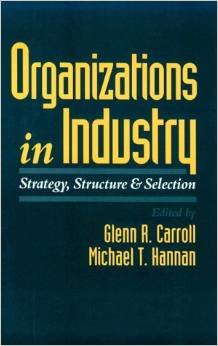Publications
Making Great Strategy: Arguing for Organizational Advantage
(with Jesper B. Sørensen). Columbia Business School Publishing, 2021.
Book Website, Columbia University Press, Amazon
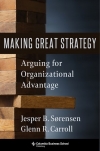
(with Jesper B. Sørensen). Columbia Business School Publishing, 2021.
Book Website, Columbia University Press, Amazon

(with Michael T. Hannan and László Pólos). Princeton, N.J.: Princeton University Press, 2007.
Amazon, Publisher, Google Books, Goodreads
Logics of Organization Theory sets forth and applies a new language for theory building based on a non-monotonic logic and fuzzy set theory. In doing so, not only does it mark a major advance in organizational theory, but it also draws lessons for theory building elsewhere in the social sciences. Organizational research typically analyzes organizations in categories such as “bank,” “hospital,” or “university.” These categories have been treated as crisp analytical constructs designed by researchers. But sociologists increasingly view categories as constructed by audiences. This book builds on cognitive psychology and anthropology to develop an audience-based theory of organizational categories. It applies this framework and the new language of theory building to organizational ecology. It reconstructs and integrates four central theory fragments, and in so doing reveals unexpected connections and new insights.
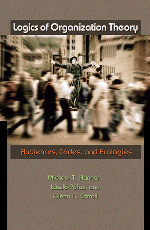
(with J. Richard Harrison). Princeton, N.J.: Princeton University Press, 2006.
Amazon, Publisher, Google Books, Goodreads
How do corporations and other organizations maintain and transmit their cultures over time? Culture and Demography in Organizations offers the most reliable and comprehensive answer to this complex question to date. The first book on the subject to ground its analysis in mathematical tools and computer simulation, it goes beyond standard approaches, which focus on socialization within organizations, by explicitly considering the effects of demographic processes of entry, exit, and organizational growth.
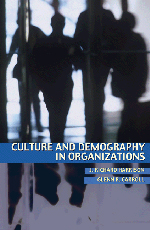
(with Michael T. Hannan). Princeton, N.J.: Princeton University Press, 2000.
Amazon, Publisher, Google Books, Goodreads
The Demography of Corporations and Industries is the first book to present the demographic approach to organizational studies in its entirety. It examines the theory, models, methods, and data used in corporate demographic research. Carroll and Hannan explore the processes by which corporate populations change over time, including organizational founding, growth, decline, structural transformation, and mortality. They review and synthesize the major theoretical mechanisms of corporate demography, ranging from aging and size dependence to population segregation and density dependence. The book also explores some selected implications of corporate demography for public policy, including employment and regulation.
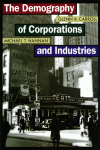
(with Michael T. Hannan). New York: Oxford University Press, 1995.
Amazon
Offers an in-depth look at historical organizational reality. Intended as a real world companion to classes that involve the theoretical analysis of formal organizations, this straightforward, accessible text presents an inside look at the actual structure and evolution of numerous different industries. Individual chapters are on specific industries and discuss developments from the origin of the industry to the near present, covering automobile manufacture, biotechnology, financial services, health care, labor organizing, microcomputer manufacture, art museums, newspaper publishing, radio broadcasting, railroad transport, and telephony. Ideal for any course in organizational behavior or theory, the benefits of this approach include practical institutional knowledge about particular industries, valuable insight into organizational society through comparative analysis, a clear understanding of the real-life difficulty associated with organizational change, and an opportunity to study the operation of selection processes among organizations.
